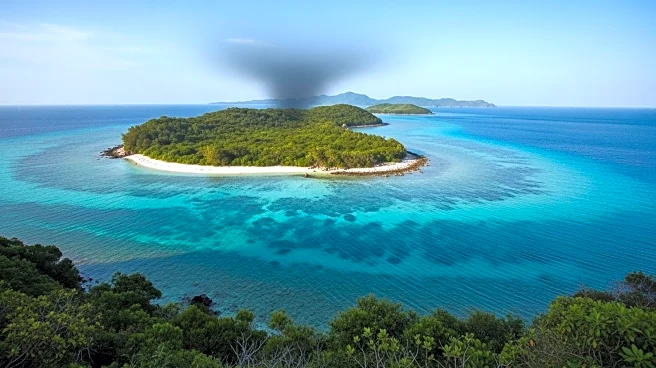What's Happening?
The National Security Council (NSC) of the Philippines has criticized China's plan to establish a 'Huangyan Island National Nature Reserve' at Scarborough Shoal, labeling it as a pretext for occupation. National Security Adviser Eduardo Año stated that the move violates international laws, including the United Nations Convention on the Law of the Sea (UNCLOS) and the 2016 arbitral ruling favoring Manila. The NSC argues that China's actions are aimed at asserting control over the maritime feature, which lies within the Philippines' exclusive economic zone. The Department of Foreign Affairs plans to file a diplomatic protest against Beijing's proposal.
Why It's Important?
The establishment of a nature reserve by China at Scarborough Shoal has significant geopolitical implications, as it could further escalate tensions in the South China Sea. The area is a strategic and resource-rich region, and China's actions may be perceived as an attempt to solidify its territorial claims, challenging the sovereignty of neighboring countries. This development could impact regional stability and international maritime law, affecting trade routes and fishing rights. The Philippines, along with other Southeast Asian nations, may face increased pressure to respond diplomatically and militarily to protect their interests.
What's Next?
The Philippines' planned diplomatic protest could lead to heightened diplomatic tensions between Manila and Beijing. Other countries with interests in the South China Sea may also voice their concerns, potentially leading to international discussions or interventions. The situation may prompt ASEAN and other regional bodies to address the issue collectively. Additionally, the Philippines might seek support from allies, such as the United States, to counter China's actions. The ongoing dispute could influence future negotiations and agreements regarding maritime boundaries and resource sharing in the region.
Beyond the Headlines
China's move to establish a nature reserve at Scarborough Shoal raises questions about the use of environmental protection as a geopolitical tool. The situation highlights the complex interplay between ecological conservation and territorial sovereignty. It also underscores the challenges of enforcing international law in contested regions. The incident may prompt a reevaluation of conservation efforts in politically sensitive areas, emphasizing the need for transparency and cooperation among nations to ensure genuine environmental protection.










